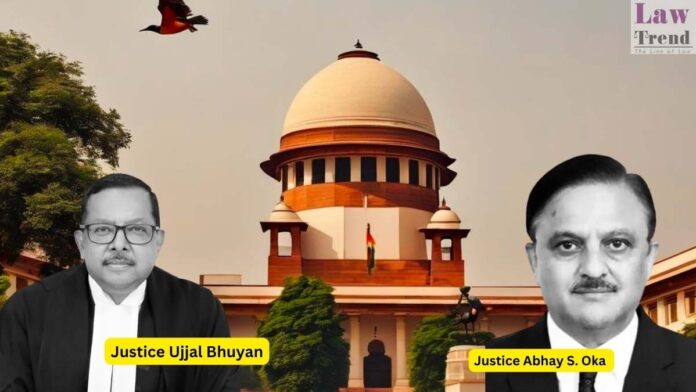The Supreme Court of India has acquitted Shambhu Choudhary, who had been convicted in a 2011 murder case, on the ground that the Trial Court failed to comply with the mandate of Section 313 of the Criminal Procedure Code (CrPC). The Court held that the accused was not properly examined regarding each incriminating piece of
To Read More Please Subscribe to VIP Membership for Unlimited Access to All the Articles, Download Available Copies of Judgments/Order, Acess to Central/State Bare Acts, Advertisement Free Content, Access to More than 4000 Legal Drafts( Readymade Editable Formats of Suits, Petitions, Writs, Legal Notices, Divorce Petitions, 138 Notices, Bail Applications etc.) in Hindi and English.




